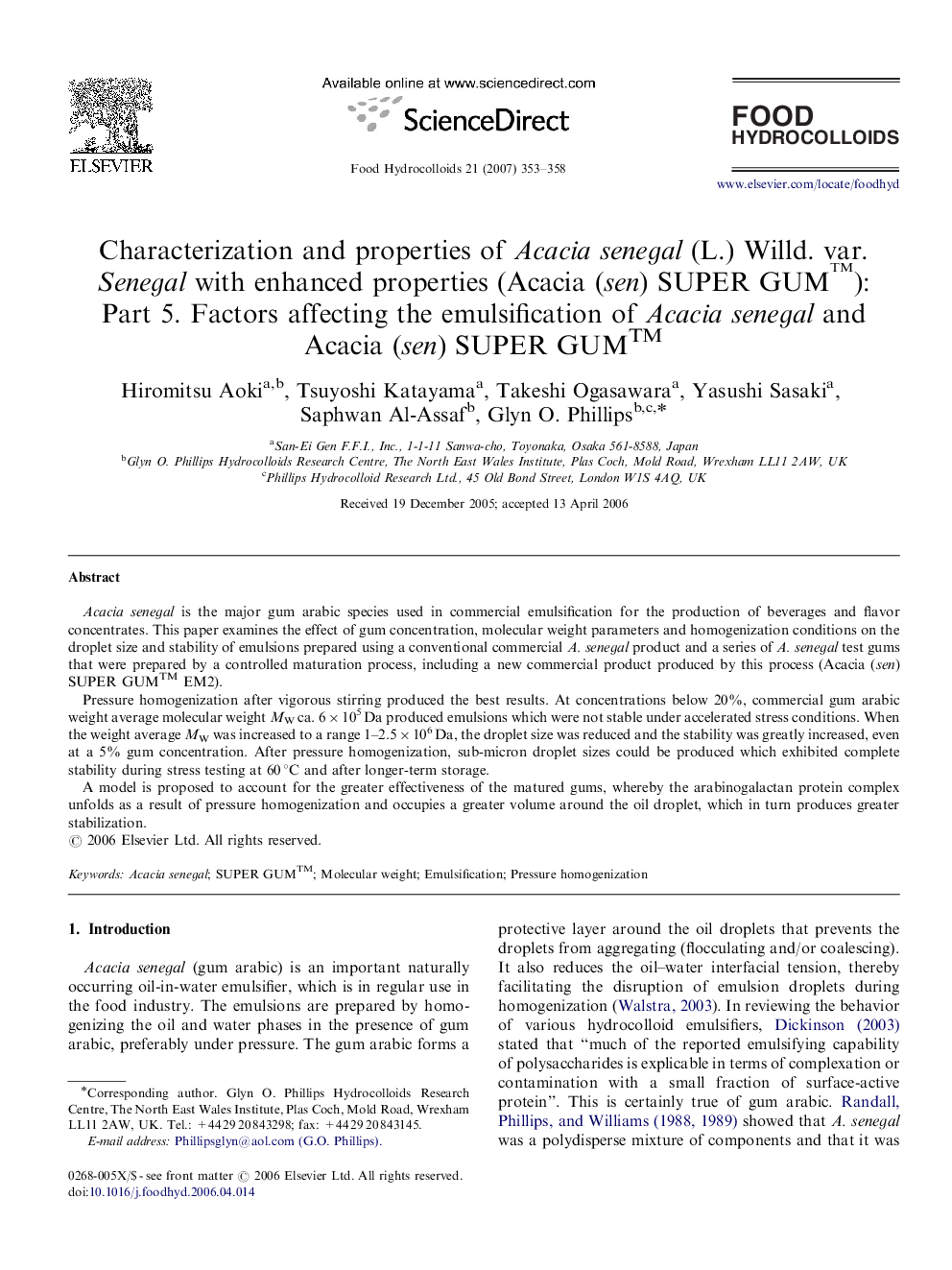| Article ID | Journal | Published Year | Pages | File Type |
|---|---|---|---|---|
| 605892 | Food Hydrocolloids | 2007 | 6 Pages |
Acacia senegal is the major gum arabic species used in commercial emulsification for the production of beverages and flavor concentrates. This paper examines the effect of gum concentration, molecular weight parameters and homogenization conditions on the droplet size and stability of emulsions prepared using a conventional commercial A. senegal product and a series of A. senegal test gums that were prepared by a controlled maturation process, including a new commercial product produced by this process (Acacia (sen) SUPER GUM™ EM2).Pressure homogenization after vigorous stirring produced the best results. At concentrations below 20%, commercial gum arabic weight average molecular weight MW ca. 6×105 Da produced emulsions which were not stable under accelerated stress conditions. When the weight average MW was increased to a range 1–2.5×106 Da, the droplet size was reduced and the stability was greatly increased, even at a 5% gum concentration. After pressure homogenization, sub-micron droplet sizes could be produced which exhibited complete stability during stress testing at 60 °C and after longer-term storage.A model is proposed to account for the greater effectiveness of the matured gums, whereby the arabinogalactan protein complex unfolds as a result of pressure homogenization and occupies a greater volume around the oil droplet, which in turn produces greater stabilization.
